Essential Dental Hygiene and Wellness Tips for a Healthy Smile
Not dealing with dental issues like cavities or gum disease can mess up your eating and speaking, cause pain, and leave you with unpleasant breath. However, here’s the thing, it’s not just about your mouth or flashing a dazzling smile. Believe it or not, poor dental health can also wreak havoc on other parts of your body and life.
It’s like a domino effect, impacting your heart, diabetes, pregnancy, and even causing chronic inflammation like arthritis. Dental hygiene and wellness go beyond daily brushing and flossing. Create a comprehensive checklist to ensure you stick to a routine that works for you and your family. Start with these:
1. Regularly Meet Your Dental Professional
The foundation of a strong dental hygiene and wellness routine starts with regular visits to your dentist. While it’s easy to only visit when a problem arises, routine check-ups and cleanings are key to preventing potential issues, like cavities and gum disease. By seeing your dentist at least twice a year, you can maintain optimal oral health and avoid the discomfort and expense of more serious dental problems. These regular appointments allow for early detection of any issues before they develop into larger, more complicated conditions.
As the Australian Dental Association points out, your dentist plays a critical role in evaluating, diagnosing, preventing, and treating oral diseases. Your dentist isn’t just someone to see when you’re in pain—they are your go-to partner for ongoing oral care. Your dentist can provide tailored advice based on your unique needs, whether it’s adjusting your brushing technique or recommending specific treatments to improve your overall dental health. By developing a personalised plan together, you can stay proactive in your dental care routine.
Choosing the right dentist is an important step in ensuring your long-term oral health. Start by asking for recommendations from friends and family, or do a local online search to find a dentist with strong reviews and a reputation for quality care. It’s a good idea to book consultations with a few different dentists to get a feel for their practice and approach to patient care. When you find the right fit—someone who is experienced, approachable, and genuinely attentive to your needs—they’ll become an essential ally in helping you maintain your dental hygiene and wellness.
2. Inquire About if Your Dentist Works With Other Labs
Digital dental labs have revolutionised the dental industry, and you might be surprised to learn how they can enhance your dental care. According to BMC Health Services Research, these labs are like the tech wizards of the dental world, equipped with AI and laser-powered scanners. They work magic by creating super-accurate models of your mouth’s hard and soft tissues. With digital X-rays, they bring picture quality to a whole new level, way better than traditional films.
So, why does this matter? Well, these digital wonders improve efficiency in dental procedures and make everything run efficiently. Improved services look like better-fitting crowns, bridges, and other dental prosthetics. Also, doctors get to save time, and as a patient, you receive quicker and more precise treatments. So when you visit your dentist or are looking for one, always inquire if they work with digital dental labs.
3. Ensure Your Young Family Members Are Learning About Good Oral Health
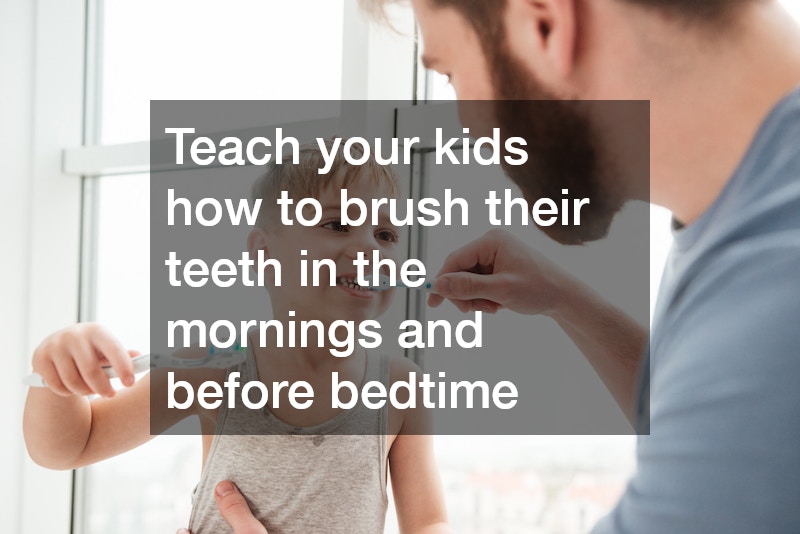
As a parent, you want your child or children to grow up with healthy smiles, so you teach them how to brush their teeth in the mornings and before bedtime. It becomes part of your family night routine, but unfortunately, it never goes beyond that. Even if you don’t know all the scientific benefits of oral health, your child can learn about them in an early childhood learning centre. Ask about the oral health education programs at your child’s daycare or early childhood learning centre and check the content of what’s being taught.
Your child’s daycare or kindergarten may not offer these programs, but if parental involvement is encouraged, suggest that the centre incorporate oral health lessons into its curriculum. It doesn’t have to be complicated. Let the school or daycare teach simple practices like proper brushing techniques, the benefits of limiting sugary snacks, and visiting the dentist regularly.
The caregivers and teachers should make these subjects fun and interactive. All you must do at home is reinforce what they’ve been learning at school. This way, you’re setting them up to enjoy a lifetime of dental hygiene and wellness.
4. Visit Hospitalised Loved Ones With Oral Health Materials
While oral health is a vital part of overall well-being, it can often be overlooked in hospital settings. Medical professionals may be focused on addressing critical health concerns, leaving less attention for daily oral hygiene. This is where you can make a significant impact. By visiting your loved ones in the hospital with a thoughtful care package containing essential oral health materials, you can help ensure they maintain their dental hygiene while recovering. A toothbrush, toothpaste, dental floss, and mouthwash are all simple items that can go a long way in promoting comfort and well-being during their stay.
Hospitals may provide some basic oral care products, but this varies widely, and not every facility ensures that patients receive the attention their dental health requires. A personalised care package shows your concern for your loved one’s overall health. By including items that support good oral hygiene, you contribute to their ability to maintain a clean mouth, which can prevent complications like gum disease or infections that might arise from neglecting oral care during a hospital stay.
When adding this to your dental hygiene and wellness checklist, be sure to keep a kit ready in case you need to visit someone in the hospital. It’s a simple yet meaningful way to support their recovery and remind them that oral health matters, even when they’re dealing with more pressing health concerns. Providing your loved one with oral health materials can also be a comforting and caring gesture, helping them feel more at ease during their time in hospital.
5. Make Sure Your Elderly Family Members Receive the Dental Care They Deserve
As your family members age, they may face challenges maintaining their oral health. The Australian Institute of Health and Welfare notes that older adults are more prone to gum disease, and a significant percentage of adults aged 65 years or older have gum disease. Again, many seniors have lost all or most of their teeth. Age-related salivary changes, a poor diet, and gradual thinning of enamel are factors contributing to these issues.
Ensuring your older relatives receive the dental care they deserve is crucial for them to lead happier lives in their twilight years. If they’re eligible for aged care services, get them a dental healthcare insurance cover they can use. You can also seek assistance in navigating the complexities of healthcare coverage for elderly individuals. This will help them understand their dental benefits and find suitable dental care providers.
6. Check on Your Elderly Family Members Who Require Dental Support
In most cases, seniors need additional support in their daily lives. So, even with insurance coverage, they still can’t take advantage of its benefits independently. They need help. That’s why you should check on family members who require dental support.
You can enlist elder care assistance to help alleviate some of the struggles that your elderly loved ones face in accessing healthcare services, such as mobility issues and difficulty navigating technology. If you can’t afford elder care assistance services, be proactive in arranging local transport to and from dental appointments or inquiring about home care dental services and the possibilities of telemedicine. Your attentiveness can make a significant difference in maintaining their dental hygiene and wellness.
7. Find out if Your Elderly Family Members Have the Needed Resources for Their Dental Care
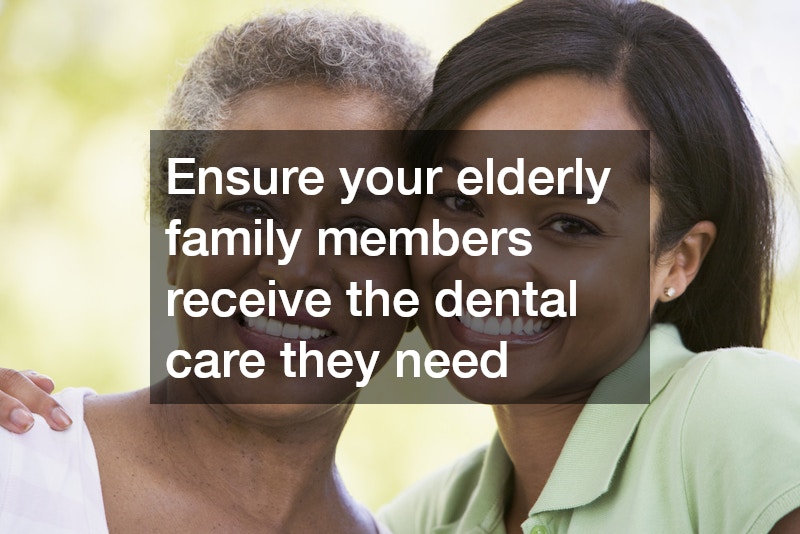
As people age, maintaining good dental health becomes more challenging. For elderly individuals, the cost and accessibility of dental care can often be major obstacles. Many older Australians, particularly those on fixed incomes or without private health insurance, may struggle to afford regular dental check-ups or treatments. Without the proper resources, even simple dental issues can escalate into more serious conditions, potentially affecting their overall health and quality of life.
One of the first steps in addressing this issue is to research and understand the financial support options available. There are several government initiatives and community programs designed to assist elderly individuals with dental care. For example, Medicare offers some dental services to eligible older Australians, and some states have public dental services available for pensioners or those with low income. It’s important to help your elderly family members navigate these resources, whether through social services, local councils, or not-for-profit organisations that specialise in senior health and well-being.
Additionally, consider looking into private health insurance policies that may cover dental treatments for seniors. Many private health insurers offer tailored plans for older Australians that include dental cover, so it’s worth reviewing these options. By connecting your elderly family members with the right financial aid and support services, you can ensure they receive the dental care they need, preventing further complications and ensuring they continue to enjoy good oral health well into their later years.
8. Ask About Baked Goods That Have Lower Sugar Content for Your Dental Health
While sugary treats can be delightful, they can also affect dental health. The World Health Organisation says the sugars you eat interact with plaque bacteria to produce acid that slowly dissolves the teeth’ enamel, creating holes or cavities in the teeth. Tooth decay can lead to tooth abscesses, necessitating tooth extraction. These facts are scary, but they don’t mean you must give up baked goods entirely to maintain good dental hygiene and wellness.
Consider visiting bakeries that offer low-sugar options. Many modern bakeries now cater to health-conscious customers, providing treats made with natural sweeteners, alternatives like stevia, or reduced sugar recipes. So, you can still indulge while minimising the impact on your dental health.
9. Be Aware of How Different Products Impact Your Health
You’re exposed to various products daily, some of which can affect your dental health and overall wellness. E-cigs, or electronic cigarettes, have gained popularity as an alternative to traditional smoking. While some see it as a less harmful option, it’s essential to be aware of its potential impact on oral health.
E-cigs, like regular cigarettes, can trigger inflammation in the mouth, leading to gum disease, dry mouth, and halitosis. Nicotine restricts blood flow to the gums, contributing to periodontal disease. Other products such as soft drinks, wine, sticky candies, and certain medications can also erode enamel and increase the risk of cavities.
10. Consider What Dental Care Certain Family Members May Need While in Rehab
Dental care may not be a top priority for family members undergoing rehabilitation in drug rehab centres, halfway houses, or other facilities. However, it’s still important to consider their oral health during this time. Ask the rehab centre staff how they prioritise dental care for their residents. You can also help by arranging for dental appointments during their stay or after their rehabilitation process.
11. Use the Right Dental Care Products
There are countless toothpaste brands on supermarket aisles; how do you know the ‘right’ one? Health experts say the best toothpaste for your teeth has the Australian Dental Association (ADA) seal of approval, contains at least 1,000 parts per million fluoride, and is not too abrasive.
Live Science explains that electric toothbrushes do a much better job cleaning your teeth and tongue than manual ones. If you can’t access an electric toothbrush, learn to brush manually with good techniques like circular motions, angling the brush, sweeping the brush gently over your gums, and rinse well.
Dental hygiene and wellness should be a top priority in your life. Commit to regularly meeting your dentist, utilising modern dental technology, and encouraging good oral health habits from an early age. This way, you can ensure the well-being of yourself and your family members.
Remember to include elderly family members’ dental needs in your checklist and always be mindful of how your everyday products impact dental health. If you or a loved one is recovering from substance abuse, consider dental care intervention to help alleviate the harm caused by drugs or alcohol. It’s a day-at-a-time affair, so work on incorporating these ideas and others you find step by step.
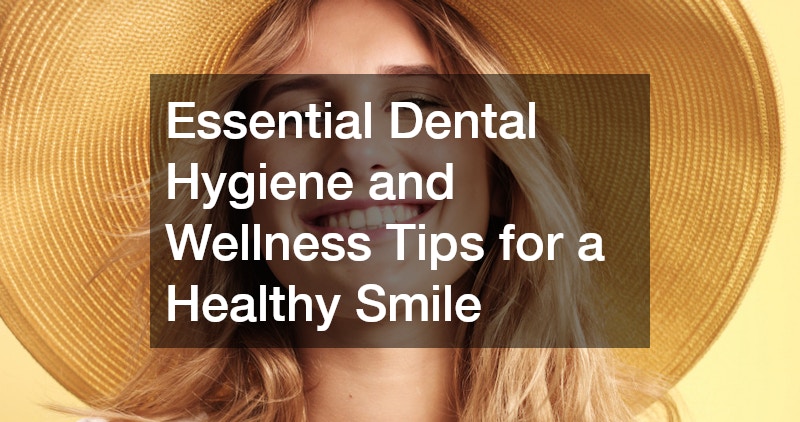
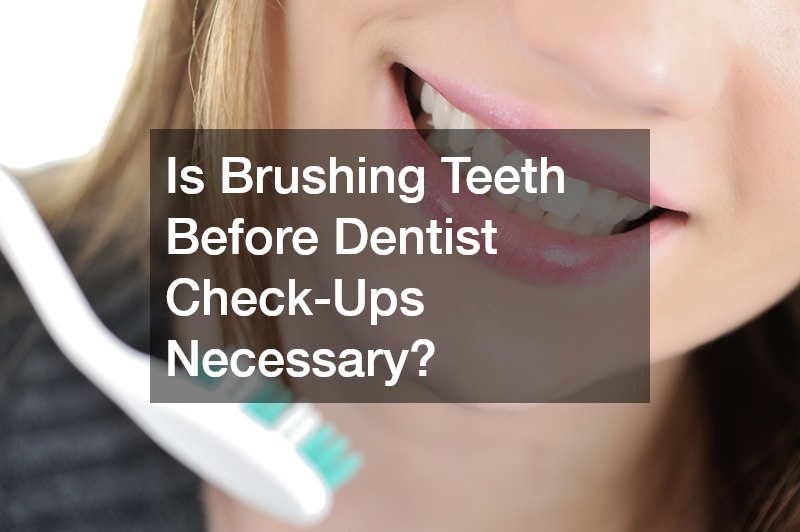
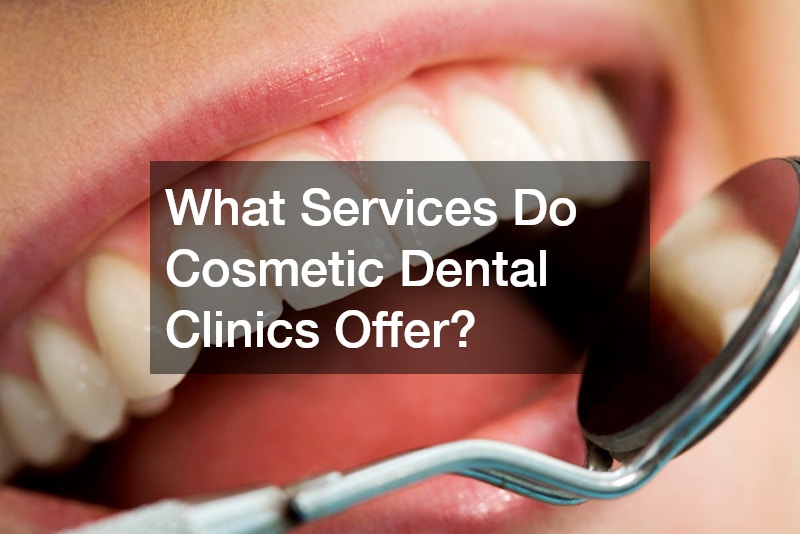

Post Comment